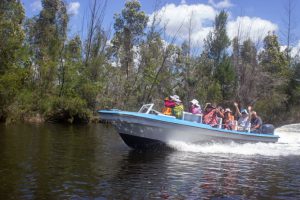Cuba’s Zapata Swamp enchants foreign tourists

One of the most surprising trips to Cuba today is related to the Zapata Swamp (Cienaga de Zapata), a relevant wetland and attractive tourist scenario.
The area’s guides highlight that 2024 means a lot for this site on account of the interest awakened especially in foreigners for the color and surprises of that territory.
It is one of the most interesting places in southwestern Cuba, with an exceptional panorama of several types of swamp ecosystems.
A site of low, marshy and semi-marshy plains, located on peat and limestone deposits, with hydromorphic soils and natural savannah vegetation.
As it is to be expected, this kind of scenery is perfect for taking pictures, and having a privileged walk on vacation, since its high aesthetic value, with spaces such as La Laguna del Tesoro (The Treasure Lagoon) and the Hatiguanico River Basin, the main waterway in the area, as well as Playa Larga and Playa Giron.
The place treasures forests on limestone and poorly drained parts, and mangroves. In addition, there are large extensions generally flooded where the marsh grassland grows, formed by Cortadera, Palmacana, Arraijan, Yana and Guanito, among other plants.
Its fauna is privileged as the Zapata rail (gallinuela de Santo Tomas) and the Zapata wren (ferminia), birds that are exclusive to the area, and are considered to have the most restricted habitat in the world, can be found.
In addition, over 100 species of birds can be observed, including the bee humming bird, Zapata sparrow, Gundlach’s hawk, Catey, parrot and quail dove, of which there are large concentrations throughout the year.
That swamp is a natural refuge for thousands of migratory birds from North America.
There are 16 species of reptiles, including Cuban and American crocodiles, iguanas, lizards, majas, and several types of frogs.
Mammals include an endemic species such as the dwarf hutia, as well as the conga hutia, and abundant introduced populations of wild boars and deer.
In the estuaries and lagoons, it is feasible to find two species of aquatic vertebrates, manatee and Cuban gar, the latter is only found in the Swamp.
Its waters are haven for a good representation of marine fauna, such as fish and corals. Experts have described this place as the largest wetland in the insular Caribbean.
Source: Prensa Latina

MORE NEWS










